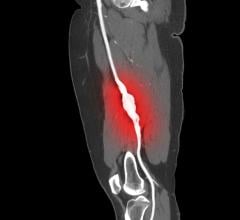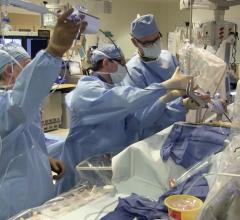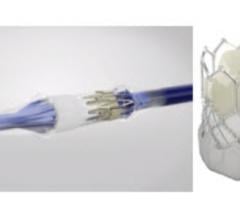Areas with a higher number of fast food restaurants have more heart attacks, according to research presented at the Cardiac Society of Australia and New Zealand (CSANZ) 2019 annual meeting, Aug. 8-11 in Adelaide, Australia. The study also found that for every additional fast food outlet, there were four additional heart attacks per 100,000 people each year.
Patients with peripheral artery disease (PAD) were significantly less likely to face amputation after surgical intervention if they were on statin medications, according to a newly released report in the Journal for Vascular Surgery.1 Those patients also had fewer deaths over the 88-month review period.
August 23, 2019 — Cook Medical recently released the second generation of the 2.6 Fr CXI Support Catheter with platinum ...
Providing exceptional cardiovascular care for patients to achieve the best possible outcomes is the number one goal for ...
John Carroll, M.D., FACC, FSCAI, director of interventional cardiology at the Cardiac and Vascular Center at the ...
Interview with Kevin Rogers, M.D., director of vascular medicine at the University of Colorado Hospital. He explains ...
August 22, 2019 — Renovacor Inc, a preclinical-stage biopharmaceutical company, announced the successful completion of ...
Cardiac positron emission tomography (PET) is growing in popularity among cardiologists because it provides the ability ...
The amount of opioids prescribed for patients after heart and lung surgery has a direct relationship with the risk for opioid dependency and “persistent opioid use” several months after the operation, according to new research. The study is published online in The Annals of Thoracic Surgery.
Edwards Lifesciences is recalling the Sapien 3 Ultra delivery system after receiving reports of burst balloons during implantation procedures, which have resulted in significant difficulty retrieving the valve into the catheter and withdrawing the system from the patient. The company said this may cause vascular injury, bleeding or surgical intervention.
Increasing incidence of cardiovascular diseases worldwide is creating growth opportunities for the global cardiovascular stents market, predicts Fortune Business Insights in a new study.
When performing radiofrequency (RF) ablation to treat cardiac arrhythmia, medical professionals must balance the safety ...
Jackson Memorial Hospital in Miami celebrated the opening of two newly renovated cardiac catheterization suites during a ribbon-cutting ceremony on August 19, 2019. The suites feature the new Alphenix Core+ from Canon Medical Systems, which provides diverse imaging without compromising image quality or performance. Jackson Memorial is the first hospital in Florida offering this new technology.
In a study that spanned two and a half decades and looked at data from more than 4,700 participants, Johns Hopkins researchers have added to evidence that abnormal blood pressure in midlife persisting into late life increases the likelihood of developing dementia. Although not designed to show cause and effect, the study suggests that maintaining a healthy blood pressure throughout life may be one way to help decrease one’s risk of losing brain function.
Left ventricular assist devices (LVADs) have been shown to help leaky mitral valves that create significant regurgitation, but a new study questions the presumption that all’s well with the mitral valve after a patient receives a LVAD.
Change Healthcare Cardiology Hemodynamics is an integrated hemodynamic monitoring system for monitoring vital signs and ...
Healthcare data breaches are currently being reported at a rate of more than one a day, according to a new report from the nonprofit Institute for Healthcare IT (IHIT). And for those who think it can’t happen to them, the odds are not in their favor. Breaches reported between 2009 and 2018 have resulted in the theft or exposure of almost 190 million healthcare records, a number equal to 59 percent of the U.S. population, according to the HIPAA Journal.
People suffering from insomnia may have an increased risk of coronary artery disease, heart failure and stroke, according to new research in the American Heart Association’s journal Circulation.
The U.S. Food and Drug Administration (FDA) approved the Barostim Neo System for the improvement of symptoms in patients with advanced heart failure who are not suited for treatment with other heart failure devices, such as cardiac resynchronization therapy. The FDA gave the device a Breakthrough Device designation because it treats a life-threatening disease, heart failure, and addresses an unmet medical need in patients who fail to get adequate benefits from standard treatments and have no alternative treatment options.

 August 26, 2019
August 26, 2019

















